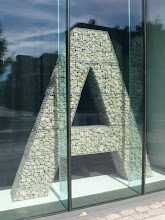124 Kingsland Road
Humus, enginar, börek, imam bayaldi
and a fresh orange juice
The outside tables are all taken by men watching Brazil against Portugal in the World Cup on the screen inside the café. We take a seat at a table that is below a wall full of seemingly homoerotic photographs of oiled men wrestling with each other.

On closer inspection the accompanying text reveals them to be photographs of Turkish oil wrestlers* from the Kirkpinar festival that is held in Edirne each year. The owner, who has come over to take our order says that he oil wrestles and has done for twenty years. Apparently it happens all over Turkey and five days ago there was even some happening in Clissold Park. We order a selection of mezzes, he says that at home they eat a lot of enginar—a mix of gherkins, artichoke hearts and olives—to clean the liver. Apparently if you drink a lot, like he does, it is very good for black liver. Whatever that is.


He is a friendly, chatty guy and goes on to tell us that he is originally from Istanbul, but that he has been here for twenty seven years. He doesn’t live in Hackney though, but south of the river. He and my friend marvel at the new overground that has cut both of their journeys north from an hour and a half to twenty minutes. The food arrives, he proudly tells us it is all homemade—enjoy darlings.


As we linger over our dishes, which are all delicious, I realise that Dire Straits has been playing on a loop since the football finished. This is in contrast to most of the other places I have been so far, where music from ‘home’ has been playing. I wonder if it is more ‘real’ to play Turkish music, or is it less real. Stereotypical images of curry houses, with their flock wallpaper, also come replete with piped Indian music. Maybe places that pipe in music from ‘home’ are more for the tourist who wants an ‘authentic’ cultural experience? Perhaps there is someway of telling which music is ‘real’ and which is for show? The Turkish radio station in the Garden café seemed real, as did the quiet Turkish music in Şömine, in fact both of those seemed to be more for the staff than the customers. Dire Straits though, surely that couldn’t be anything other than real. Even for Dalston, that can’t be irony.
Ethnicity and authenticity
It is perhaps fully expected that ‘ethnic’ restaurants provide a theme park like approach to their brand experience through interior design, graphic design, staff dress and music. After all one, goes to a restaurant not just to eat in a functional, fuel like sense, but for a richer experience. I am sure we all have our favourite haunts, and the ‘ambience’ of a place is often a key part of our decision making. But can too much ‘authenticity’ lead to a sense of inauthenticity, or perhaps to a Buadrillard-like simulacrum of the hyperreal? My experience to date in Hackney leads me to think this is a complex, and inevitably contradictory, area.
*
Seen as the national sport of Turkey, oil wrestling is popular all over the country, but the most famous festival is the Kirkpinar, held in Edirne each year since 1360. Legend has it that the sport was established at this time during a campaign by the Ottoman sultan Orhan Gazi, to invade Thrace. Led by the sultan’s son, Süleyman Pasha, forty warriors seized several strongholds. At night, to relax, the soldiers began to wrestle covered in oil. Two brothers, Ali and Selim Pehlivan remained locked in combat, with neither able to gain the upper hand. The rest of the soldiers went to sleep as the brothers continued to wrestle. On waking the troops found that the brothers had fought for so long and so hard during the night that both had died. They buried them both under a fig tree in the field and continued their raids. Six years later they returned to the burial site and found that several springs has appeared around the tree, so they named the place Kirkpinar—literally forty springs. Until 1975 there was still no time limit imposed on wrestling matches at Kirkpinar, but since then bouts have been limited to thirty or forty minutes, depending on the category. The wrestlers wear tight, short leather trousers called Kispet, that are made out of water buffalo or calf leather. They cover their bodies with oil to make holding difficult and according to tradition, wrestlers oil each other’s back using an oil kettle. Around 2,000 wrestlers compete each year, with the winner being crowned Baspelhivan of the year and taking the title Champion of Turkey.



No comments:
Post a Comment